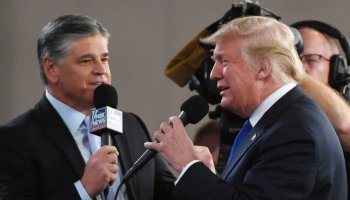via CNN
Half of the people who identify with the tea party in a new poll reject the science of global warming (50%) and evolution (51%), sentiments that some observers believe portray an increasingly religious electorate that mimics some GOP presidential hopefuls.
These numbers compare with 69% of all people surveyed who “believe there is solid evidence that the average temperature on Earth has been getting warmer over the past few decades” and 57% who “believe humans and other living things evolved over time.”
According to a Thursday release from the Public Religion Research Institute, the firm that conducted the poll, these results present a strategic challenge for GOP presidential contenders.
“Americans who identify as Republican, along with key groups in the Republican base such as white evangelical Protestants and members of the tea party, hold views that differ significantly from the general population and from political independents,” stated an analysis of the poll.
These numbers mirror those in a September 9-11 CNN/ORC International poll that found 58% of tea party Republicans don’t believe global warming is a proven fact and 50% of tea party Republicans don’t believe the theory of evolution is true.
Charles W. Dunn, author of “The Presidency in the 21st Century” and a distinguished professor at Regent University, a conservative Christian school founded by Pat Robertson, said these issues reflect the candidates’ bedrock belief that the bible is the “infallible word of God.”
“There is a direct relationship between these issues and religion. Manifestly direct,” Dunn said. “This evangelical force, the idea of the infallibility of scripture, is writ large in (the candidates’) thinking.”
In some cases, Dunn said, candidates’ beliefs on religious issues show their desire to “use the lever of government to usher in the kingdom of God on Earth. “
Dunn said these deeply religious beliefs will lead the eventual Republican nominee to rebrand his or her opinions once they get into the general election, moving from courting the religious right to the less religious center-right.
Robert P. Jones, CEO of the Public Religion Research Institute, agreed on the differences in opinions.
“Republican primary candidates have this very fine line to walk,” Jones said. “If they put down a marker that is too tightly tied to the tea party, while that will be helpful in the primaries, it will certainly hurt them in the general election.”
Read Full Story
Article courtesy cnn.com
















